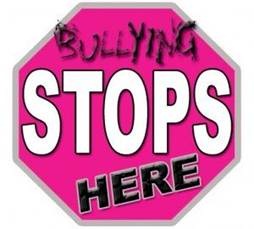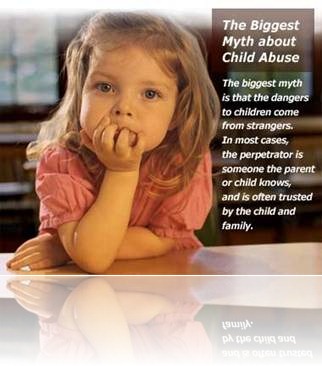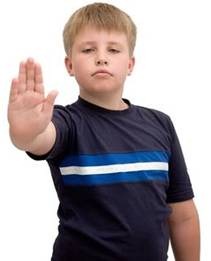
Yes, we have law enforcement officers whose job is making sure it does not continue, but if parents stop bullying their kids from fear of the police or the authorities, it will only increase their sense of disempowerment. Their focus will be again on gaining power without the authorities’ knowledge, which will create another cycle of making kids afraid of reporting and worse, hiding their physical injuries and hurts from others. This reduces the support structure available to bullied children and the chances of stopping the bullying or recovering from it.
Parents must stop the parental bullying cycle not because of the fear of being caught, but because they have gained power and understanding through developing their emotional intelligence. This way, the parents will be happy too.
We must stop the cycle of bullying so that in 10 years, we will talk about it as history and say, “This is what people did in the past, but we are more civilized and in control and we are better parents for our children”. We need to be proud of making a difference. I told my 22-year-old daughter Eden I expect her to look back on her life, judge my parenting style and my philosophy in life, do spring cleaning every spring, every birthday and every New Year. I want her to decide what parts of my parenting she likes and wants to adopt, what she liked but does not want t adopt because of different circumstances and what she does not want to adopt and will make a conscious decision to change. I told her that doing things exactly the way I did them, without judgment and without questioning, ensures our society stays stagnant and does not improve. For my grandchildren, I want a better life than my kids have and I can only guarantee that by teaching my kids to throw away some of my philosophies and behaviors and make better ones.
In this post, I want to help parents discover if they were bullied themselves when they were young and if there is a form of bullying in their home towards their own children.
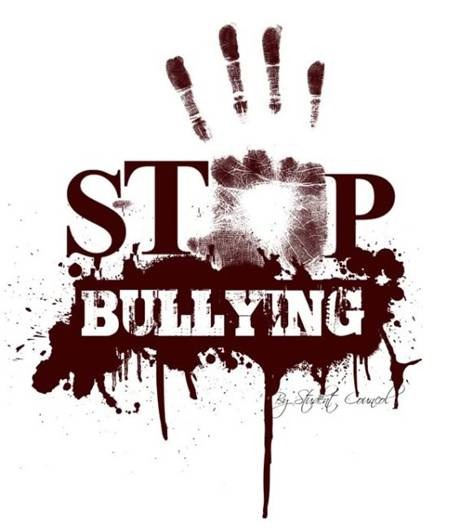
Go over the list of abusive behaviors below and find out which of them was part of your life as a kid and/or is part of your kids’ life. You can see that some of them are more serious than others and that while some are very easily defined (kicking), others are a bit more subject to interpretation (criticizing).
This exercise is not meant to judge your parents in any way but to help you find the correlation between their parenting style and yours. Often, it is hard for us to admit that we are bullies, but when we examine it honestly, we can discover that although we may be doing it differently, we are doing something that is similar to what our parents have done (which we hated).
Also, I use the word “parents”, but one bully parent is enough to do lots of damage. If this person is you, be courageous enough to write your name next to your behaviors, but if another person you know (your partner, a family member or a teacher) shows such behavior towards your child, write it down too. Being aware that there is some form of bullying in your family is the first step to stopping it, because you cannot stop something you cannot see.
What’s considered parental bullying
If you are not sure if a particular behavior is bullying, tick it too. You will have a chance to examine it later.
- Shaking a baby or a toddler – can lead to brain injury
- Drug use in pregnancy – can be dangerous to the baby
- Physical punishment – linking a child’s actions with physical consequences
- Beating
- Slapping
- Hitting
- Kicking
- Pinching
- Pushing
- Hair pulling
(all the items from 4-9 are forms of bullying. Even if you think that hitting or slapping your kids from time to time cannot hurt them, people only use such measures when they feel weak and other ways of communicating are not working) - Throwing the child – regardless of age, throwing a child can cause physical injury
- Use of objects to cause pain (belting, burning the skin with cigarettes or a hot iron, using a knife) – even if you think that they are meant to teach or discipline, they are considered severe bullying

- Threatening – again, threatening is a sign of weakness. When you say, “If you don’t <do something> I’ll <do something unpleasant to you>”, you are using force to get what you want. Many parents use threats as an education measure, but they do not understand that getting your kids to do what you want out of fear will give them short-term gain but long-term pain
- Name calling – every use of “stupid”, “useless”, “idiot”, “worthless”, etc, even when it is in a funny way, is considered bullying
- Foul language – using swear words towards your kids is considered bullying
- Insulting, especially in public
- Creating competition between siblings – in the past, many parents considered competition to be a form of motivation (see many fairytales about a king who gives his three sons a quest), but such competitions only cause rivalry between siblings and shrink their support system when things turn bad
- Negative remarks regarding gender – “You play like a sissy girl!”, “You are so gay!” and even “Stop crying, be a man”
- Negative remarks regarding preferences – “You and your stupid friends”, “I’m not letting these goons into my house”
- Negative remarks regarding skills – “You missed! You are such a loser!”, “You can’t even get your math answers right”
- Favoritism towards one child/one parent – this item is subject to interpretations, because parents cannot treat every child the same way due to their age and circumstances. However, allowing one child things another is not allowed without any connection to age or circumstances is humiliating and considered discrimination. It only increases rivalry between siblings
- Causing fear of physical bullying – when emotional bullying is accompanied by physical bullying, kids are so afraid of aggressive or violent behavior that they are in constant fear. Some abusive parents even use this is a threat and use statements like “If you don’t want me to hit you, you’ll do as I say”, as if giving the child some form of choice. Such statements are abusive and cause severe emotional damage
- Sarcastic remarks on the kids, like saying “Come and see your smart boy’s report card” when the report card is not bright at all or “That was very funny” in a flat tone without a smile, which means it was not funny at all. Sarcasm is a form of violence and a sign of weakness. People tend to use sarcasm to pretend they are not saying things in a negative way when they feel helpless or insignificant
- Telling your child you wish he or she was never born – there is nothing worse than being rejected for existing, because no effort can overcome that, leaving the child hopeless
- Telling your child you do not want him or her – “You know where the door is?” “Go stay with your dad”, “Just stay out of my way”
- Shouting – overpowering your child by winning a high-volume, high-pitch contest
- Strict rules – when the rules are too tight for the circumstances
- Controlling your child’s every movement – particularly during adolescence

- Competing with your child – “When I was a kid, I did this in a flash”, “I had many girlfriends at your age”. Parents who compete with their kids make them feel incompetent and that has a long-lasting emotional impact on the kids. If there is anything you say or do that originates from jealousy or is an attempt to present yourself in a higher/better position than your child, it falls into this category
- Unfair punishment – like punishing the older child for every sibling conflict simply because he or she is the older one. If your kids think that your punishment are not fair, tick this as one of your challenges. You can ask them what is fair punishment and you will be surprised how fair kids are, because they usually give themselves very fair punishments
- Prevention of basic needs – food, shelter, security, privacy. Providing for your kids physical and emotional wellbeing is not negotiable. It is required. Not providing it is neglect and/or abuse
- Ignoring – not giving compliments, not showing appreciation, not listening, not valuing what is important to the child by not coming to their important games, performances, award nights and other events
- Perfectionism – this is defined as expectations from self and others that are too high and cause stress. Like some other items on this list, it is hard to define when expectations are “too high”, so it is subject to interpretations. To find out if you are a perfectionist and your expectations are causing stress, ask yourself if your children perform lower than your expectations consistently. That is proof that your expectations are too high. Although some people may not think that this is a form of bullying, criticism develops a sense of inadequacy in children and causes big problems later on in their life
- Exposure to violence, drugs, crime, strong and explicit sexual behavior or extensive use of alcohol – kids do not choose their homes. Being around people who are violent, use drugs, break the law, drink excessively or engage in inappropriate sex scares them, because the people who are supposed to protect them are not in the right state to do that. This destroys their sense of security and certainty and prevents them from trusting other people
- Prevention of social interaction – with friends, other partner, grandparents, etc. This behavior is an abuse of power and is meant to give the parent a feeling of control. This causes isolation and prevents kids from fulfilling their basic needs of love and belonging. In many divorce or separation situations when there are conflicts between the parents, one parent abuses their position to prevent kids from wanting to spend time with the other partner and they manipulate the kids emotionally to satisfy their own need for power
- Slavery – working for food or education. Again, this item is complicated. There are situations where families use all the help they can get and everyone works to provide for basic needs. When parents cannot provide for their growing kids, it is perfectly acceptable to ask the kids to contribute, particularly when the kids want unnecessary things. The law allows kids to work from the age of 14 and I think that working kids does not immediately mean slavery. However, when kids are threatened with going on the street if they do not pay for school, rent or food, this is abuse of power. It is particularly severe if one or more of the parents do not contribute to the economy of the house
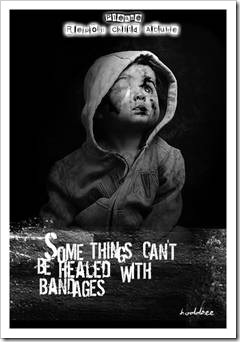
What our parents have done in the past has not survived the test of time. The proof is that today, no one considers violence acceptable, not even as a form of education. Still, with the law that prohibits bullying towards our own kids, there are many sick stories of abuse that the hand of the law cannot reach, mainly because stopping it from fear is not the same as stopping the cycle due to understanding and developing emotional intelligence.
Join me next week as I go over the bullying behaviors and give a process and some tips to stop them. Some of them I suggest getting rid of, because nothing good can come out of them, and others can be softened and minimized down to elimination. Each tip in itself can be a life-changing experience. It may not be easy to do, but it is worth it. Your kids are worth it.
Until then, happy parenting,
Ronit
This post is part of the series Bullying:
- Bullying Facts and Myth
- Bullying Statistics are Scary
- What is NOT Bullying?
- Types of Bullying
- Why Do People Bully?
- Victims of Bullying
- Bullying Bystanders
- Home of the bully
- Home of the bully (2)
- Workplace Bullying
- Workplace Bullying (2)
- How to Help Bullying Victims
- How to Help Bullying Victims (2)
- How to Help Bullying Victims (3)
- How to Help Bullying Victims (4)
- How to Help Bullying Bystanders
- How to Help Bullying Bystanders (2)
- How to Stop Workplace Bullying
- How to Stop Workplace Bullying (2)
- How Workplace Bullying Bystanders Can Break the Cycle
- How Organizations Can Stop Bullying
- How Organizations Can Stop Bullying (2)
- Bully Parents
- How to Stop Parental Bullying
- How to Stop Parental Bullying (2)
- How to Stop Parental Bullying (3)
- How to Stop Parental Bullying (4)
- How to Stop Parental Bullying (5)
- How to Stop Parental Bullying (6)
- How to Stop Parental Bullying (7)
- How to Stop Parental Bullying (8)
- How to Stop Parental Bullying (9)
- How to Stop Parental Bullying (10)
- How to Stop Parental Bullying (11)
- How to Stop Bullying with Empathy: The Story of Two Apples
